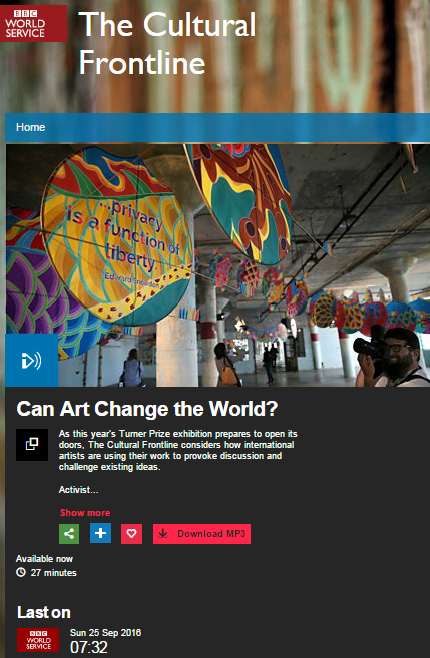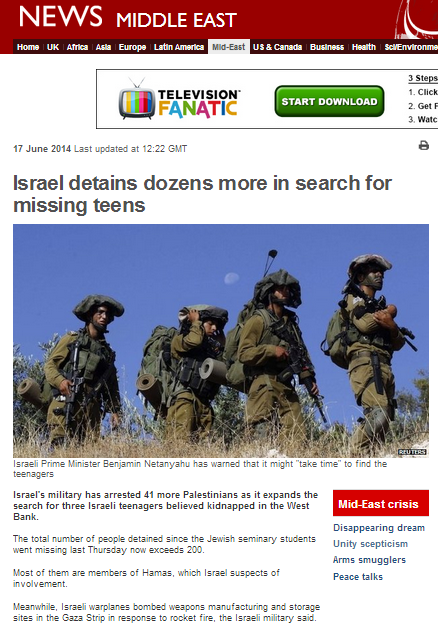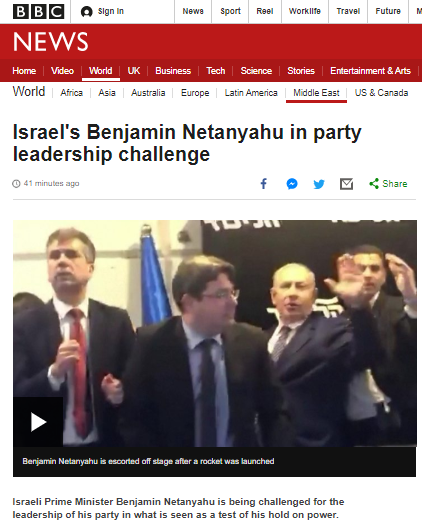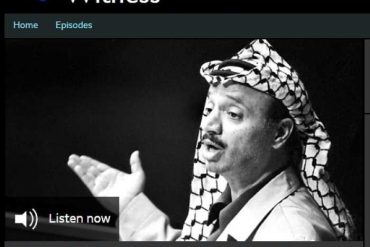The September 25th edition of the BBC World Service programme ‘The Cultural Frontline’ included a fairly long item (from 08:10 here) described in the synopsis as follows:
“…Palestinian artists Basel Abbas and Ruanne Abou-Rahme reveal how their work replaces clichéd images of their region with complex film and sound tapestries.”
In her introduction to the item, presenter Tina Daheley describes the artists’ work in similar terms:
“Rather than using their work for political protest though, they try to challenge stereotypes about their region and show complexities rather than clichés.”
Listeners actually hear very little in the way of a coherent explanation about the types of “stereotypes” and “clichés” which are supposedly challenged.
Daheley: “What sort of clichés are you reacting against?”
Abou-Rahme: “Firstly of course on the kind of media representations but at the same time it’s also this sort of traps that, you know, artists fall into which is that, you know, people want you to produce certain kind of works that have very clear, tangible images. They’re ready to respond to a perception that they have of the place and experience. You know if you’re gonna see a work that’s just showing you the checkpoint again or is just…you know…what is that gonna….how is that gonna speak to Palestinian communities? So, you know, in a way for us that’s always sort of….that it really speaks to a Palestinian audience.”
However, the absence of any effort to introduce context into this item means that in fact listeners have quite a few of the “stereotypes” and “clichés” which make up a particular political narrative reinforced.
Daheley: “Their work in video, photography and installation explores themes like colonialism, militarism and the challenges of daily life in the West Bank city of Ramallah.”
Abbas: “…young people have been making trips back to the destroyed Palestinian villages inside Israel…” […] “You’re really kind of going back to the site of your own erasure…”
Abou-Rahme: “I mean the whole project really for us started a year and a half ago at a period of really kind of immense, you know, violence and also trauma – collective trauma across the region….”
Abbas: “…our lives are, like, fragmented all the time. You know, our lines of visibility are literally fragmented with walls and checkpoints but also our experience is fragmented and communities are fragmented and separated by IDs and ID colours and you’re allowed to live here, you’re allowed to live there. So our sort of collective historical narrative is constantly…there are constant attempts to always fragment it and rewrite it…”
Abbas: “So much oppression that happens these days happens on a scale of imagination, you know, so what’s oppressed is your ability to imagine it from a way of being or your ability to imagine something else.”
‘The Cultural Frontline’ describes itself as a programme “where arts and news collide”. Not for the first time, this item clearly did nothing to contribute to meeting the BBC’s remit of enhancing audience understanding of the current affairs issue to which it relates.




